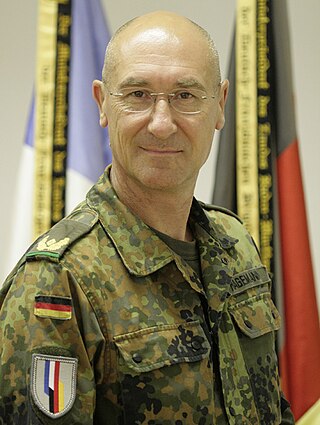Related Research Articles

Modernism was an early 20th-century movement in literature, visual arts, and music that emphasized experimentation, abstraction, and subjective experience. Philosophy, politics, architecture, and social issues were all aspects of this movement. Modernism centered around beliefs in a "growing alienation" from prevailing "morality, optimism, and convention" and a desire to change how "human beings in a society interact and live together".

Symbolism was a late 19th-century art movement of French and Belgian origin in poetry and other arts seeking to represent absolute truths symbolically through language and metaphorical images, mainly as a reaction against naturalism and realism.
William Hugh Kenner was a Canadian literary scholar, critic and professor. His studies on Modernist literature often analyzed the work of James Joyce, Ezra Pound, and Samuel Beckett. His major study of the period, The Pound Era, argued for Pound as the central figure of Modernism, and is considered one of the most important works on the topic.

The Biographical Dictionary of the Extreme Right Since 1890 is a reference book by Philip Rees, on leading people in the various far right movements since 1890. It contains entries for what the author regards as "the 500 major figures on the radical right, extreme right, and revolutionary right from 1890 to the present" . It was published, as a 418-page hardcover, in New York by Simon & Schuster in 1990 (ISBN 0-13-089301-3).
Modernist poetry refers to poetry written between 1890 and 1950 in the tradition of modernist literature, but the dates of the term depend upon a number of factors, including the nation of origin, the particular school in question, and the biases of the critic setting the dates. The critic/poet C. H. Sisson observed in his essay Poetry and Sincerity that "Modernity has been going on for a long time. Not within living memory has there ever been a day when young writers were not coming up, in a threat of iconoclasm."
This is a timeline of the history of organized crime.
Modernist literature originated in the late 19th and early 20th centuries, and is characterised by a self-conscious separation from traditional ways of writing in both poetry and prose fiction writing. Modernism experimented with literary form and expression, as exemplified by Ezra Pound's maxim to "Make it new". This literary movement was driven by a conscious desire to overturn traditional modes of representation and express the new sensibilities of the time. The immense human costs of the First World War saw the prevailing assumptions about society reassessed, and much modernist writing engages with the technological advances and societal changes of modernity moving into the 20th century. In Modernist Literature, Mary Ann Gillies notes that these literary themes share the "centrality of a conscious break with the past", one that "emerges as a complex response across continents and disciplines to a changing world".

General of the Infantry is a former rank of the German army. It is currently an appointment or position given to an OF-8 rank officer, who is responsible for particular affairs of training and equipment of the Bundeswehr infantry.
This article is focused on English-language literature rather than the literature of England, so that it includes writers from Scotland, Wales, and the whole of Ireland, as well as literature in English from former British colonies. It also includes, to some extent, the United States, though the main article for that is American literature.
References
- ↑ Pound, Ezra, Make it New, Essays, London, 1935
- ↑ Childs, Peter (2008). Modernism. Routledge. p. 4. ISBN 0415415462.
- ↑ Virginia Woolf. "Mr. Bennett and Mrs. Brown." Collected Essays. Ed. Leonard Woolf. Vol. 1. London: Hogarth, 1966. pages 319-337.
- ↑ J. H. Dettmar "Modernism" in The Oxford Encyclopedia of British Literature ed. by David Scott Kastan. Oxford University Press, 2006.
- ↑ "modernism", The Oxford Companion to English Literature. Edited by Dinah Birch. Oxford University Press Inc. Oxford Reference Online. Oxford University Press.
- ↑ Clement Greenberg: Modernism and Postmodernism, William Dobell Memorial Lecture, Sydney, Australia, 31 October 1979, Arts 54, No.6 (February 1980). His final essay on modernism. Retrieved 26 October 2011
- ↑ Cheryl Hindrichs, "Late Modernism, 1928–1945: Criticism and Theory" Literature Compass, Volume 8, Issue 11, pages 840–855, November 2011; J. H. Dettmar "Modernism" in The Oxford Encyclopedia of British Literature ed. by David Scott Kastan. Oxford University Press, 2006.
- ↑ Morris Dickstein, "An Outsider to His Own Life", Books, The New York Times, August 3, 1997.
- ↑ Late modernist poetics: From Pound to Prynne by Anthony Mellors; see also Prynne's publisher, Bloodaxe Books.
- ↑ Ulysses , has been called "a demonstration and summation of the entire [Modernist] movement". Beebe, Maurice (Fall 1972). "Ulysses and the Age of Modernism". James Joyce Quarterly (University of Tulsa) 10 (1): p. 176.